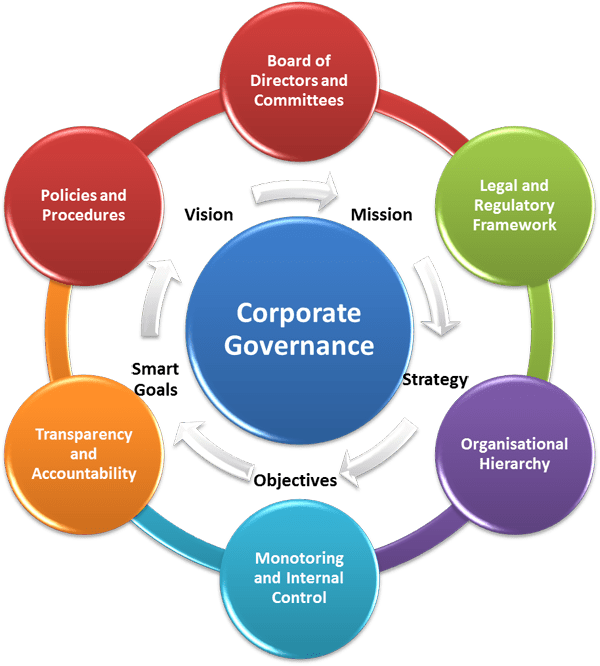-
27 Aug 2024
GS Paper 4
Theoretical Questions
Day 44: Assess the major challenges facing corporate governance in India. What reforms are necessary to improve the effectiveness of corporate governance practices in the country? (250 words)
Approach
- Give a brief introduction about corporate governance.
- State the challenges in corporate governance in India.
- Highlight the necessary reforms to improve corporate governance.
- Conclude suitably.
Introduction
Corporate governance is the set of rules and processes that guide how a company is managed and overseen.A primary goal of corporate governance is to prevent corporate greed and promote responsible and transparent business practices.Corporate governance in India is critical for maintaining investor confidence and ensuring ethical business practices. Despite improvements over the years, several challenges persist, affecting the effectiveness of governance practices.
Body
Major Challenges in Corporate Governance in India
- Board Composition and Independence
- Selection and Term of Board Members: The selection process and term lengths for board members can be misused.
- For example, the Tata-Mistry fallout in 2016 highlighted issues related to the appointment of independent directors and board stability.
- Independence of Directors: Directors’ independence is often compromised due to their close ties with promoters or management.
- The ICICI Bank controversy in 2018 exemplifies this issue, where the CEO’s approval of a loan in exchange for favors raised concerns about director independence.
- Selection and Term of Board Members: The selection process and term lengths for board members can be misused.
- Performance Evaluation and Accountability
- Evaluation of Directors: The process for evaluating board performance should be transparent and objective.
- SEBI's 2018 directive for companies to disclose evaluation criteria aimed to address this challenge. However, ensuring that evaluations for performance of directors lead to meaningful improvements remains a challenge.
- Removal of Independent Directors: Independent directors should not be removed for raising concerns or dissenting.
- The 2018 removal of an independent director from Fortis Healthcare after raising concerns over an acquisition illustrates this issue.
- Evaluation of Directors: The process for evaluating board performance should be transparent and objective.
- Conflict of Interest and Transparency
- Conflicts of Interest: Related party transactions and executive compensation can create conflicts of interest.
- SEBI’s directive in 2018 to disclose related party transactions was a step towards addressing this issue. However, conflicts of interest remain prevalent and can affect decision-making.
- Transparency and Data Protection: Ensuring transparency and protecting sensitive data are crucial.
- The RBI's 2018 directive for banks to protect customer data highlights the need for improved data protection practices.
- Conflicts of Interest: Related party transactions and executive compensation can create conflicts of interest.
- Founder/Promoter Influence and Governance Structure
- Extensive Role of Founders/Promoters: Founders or promoters often hold extensive roles that can lead to conflicts of interest and lack of transparency.
- SEBI’s 2019 directive to disclose reasons for appointing a founder as chairman of the board addresses this challenge, but the influence of founders/promoters remains a significant concern.
- Business Structure and Internal Conflicts: A clear and well-defined business structure is essential to avoid conflicts.
- The 2019 public spat at IndiGo Airlines over CEO appointments demonstrates the need for effective conflict resolution mechanisms.
- Extensive Role of Founders/Promoters: Founders or promoters often hold extensive roles that can lead to conflicts of interest and lack of transparency.
- Ethical Misconduct and Regulatory Enforcement
- Insider Trading: Insider trading involves using confidential information for personal gain, and a weak investigative mechanism can enable culprits to evade justice. Strengthening SEBI’s investigative approach is necessary to address this challenge.
- Liability Toward Stakeholders: Companies should prioritize stakeholder interests over those of promoters or management.
- The 2019 IL&FS crisis, caused by mismanagement and failure to meet financial obligations, underscores the importance of stakeholder-focused governance.
Necessary Reforms to Improve Corporate Governance
- Strengthen Board Independence:
- Following the Kotak Panel and Kumar Mangalam Birla Committee recommendations, ensure a substantial number of independent directors and separate the roles of Chairman and CEO.
- Enhance Transparency and Disclosure:
- Implement rigorous financial reporting and disclose both financial and non-financial performance, as advised by the Kotak Panel and Kumar Mangalam Birla Committee.
- Empower Shareholders and Improve Accountability:
- Support shareholder activism and use proxy advisory services to enhance accountability, aligning with the recommendations from the Kotak Panel and TK Viswanathan Committee.
- Strengthen Risk Management and Ethical Conduct:
- Establish risk management committees and develop a comprehensive code of ethics with whistleblower protections, in line with the Kotak Panel and TK Viswanathan Committee’s guidelines.
Conclusion
Addressing the challenges facing corporate governance in India requires a multifaceted approach, including strengthening regulations, enhancing transparency, and improving board effectiveness. By implementing these reforms, India can foster a more robust and ethical corporate governance environment, thereby boosting investor confidence and promoting sustainable business practices.





